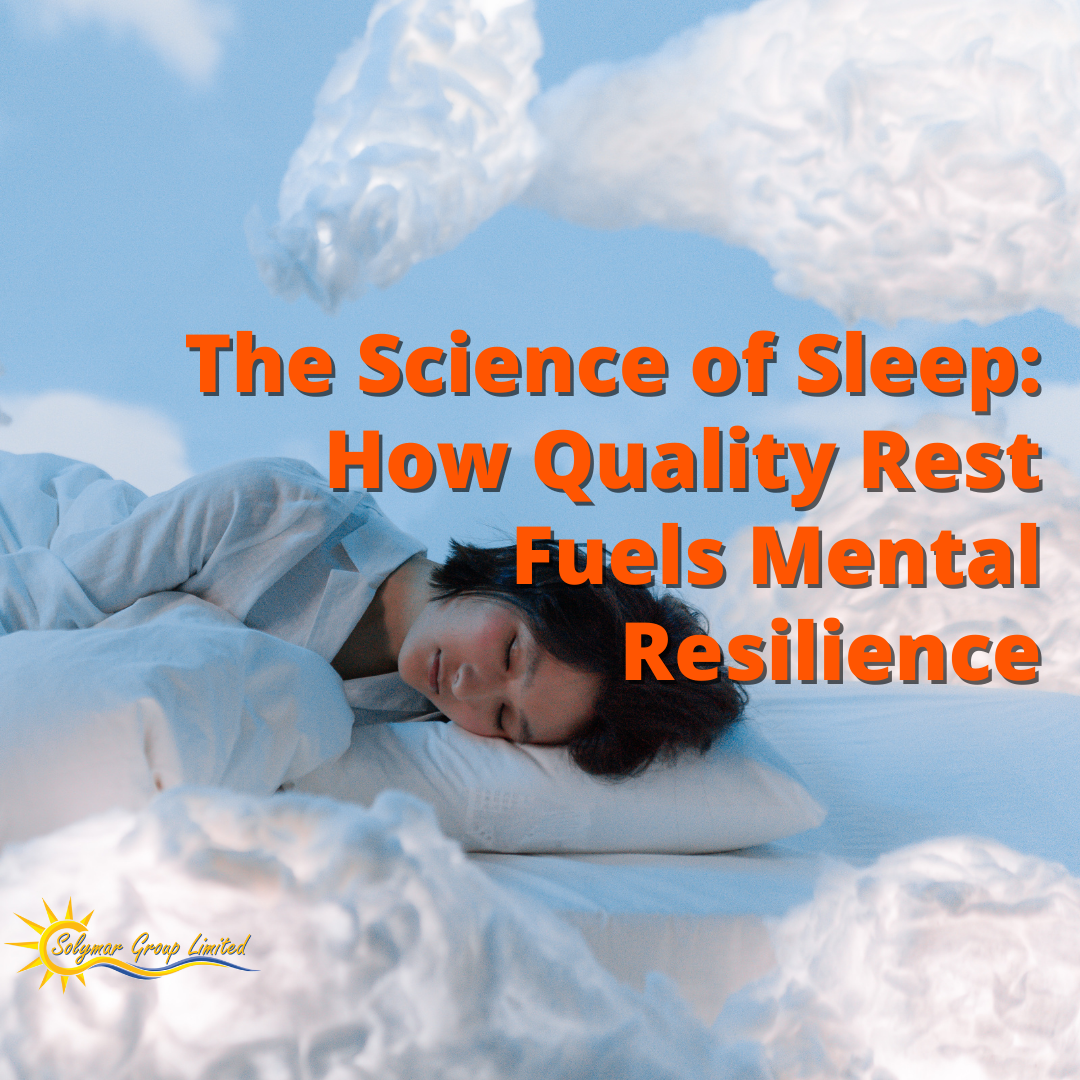 In a world that often glorifies productivity and the hustle mentality, sleep is often sacrificed or neglected. However, emerging scientific research has shed light on the critical role quality sleep plays in promoting mental resilience. Beyond simply feeling refreshed, quality rest is essential for cognitive function, emotional well-being, and overall mental resilience. In this article, we will explore the science behind sleep and its profound impact on mental resilience. Moreover, we will provide valuable tips and strategies to improve sleep quality and unlock your full potential.
In a world that often glorifies productivity and the hustle mentality, sleep is often sacrificed or neglected. However, emerging scientific research has shed light on the critical role quality sleep plays in promoting mental resilience. Beyond simply feeling refreshed, quality rest is essential for cognitive function, emotional well-being, and overall mental resilience. In this article, we will explore the science behind sleep and its profound impact on mental resilience. Moreover, we will provide valuable tips and strategies to improve sleep quality and unlock your full potential.
The Importance of Sleep for Cognitive Function
Sleep is not a mere state of unconsciousness; it is an active process that promotes optimal brain function. During sleep, the brain consolidates memories, enhances learning, and clears metabolic waste. Research has shown that sleep deprivation leads to impaired attention, memory deficits, reduced creativity, and decreased problem-solving abilities. In contrast, a good night's sleep enhances cognitive performance, allowing individuals to think clearly, make sound decisions, and retain information effectively.
Emotional Well-being and Sleep
Quality sleep is closely linked to emotional well-being. Sleep deprivation can disrupt emotional regulation, leading to heightened stress levels, mood swings, and decreased resilience to emotional challenges. When we sleep, our brains undergo essential processes to regulate emotions and restore emotional balance. Sufficient sleep enhances emotional resilience, enabling individuals to handle stress, cope with negative emotions, and maintain overall mental well-being.
Understanding Sleep Cycles
To appreciate the impact of sleep on mental resilience, it is crucial to understand the different stages of sleep. Sleep consists of two main stages: Rapid Eye Movement (REM) sleep and Non-Rapid Eye Movement (NREM) sleep. REM sleep is associated with dreaming and memory consolidation, while NREM sleep is involved in restorative processes. Both stages are essential for overall cognitive function and emotional well-being.
Tips for Improving Sleep Quality
-
Establish a Consistent Sleep Schedule: Maintain a regular sleep-wake cycle to align with your body's natural circadian rhythm.
-
Create a Relaxing Bedtime Routine: Engage in calming activities such as reading, taking a warm bath, or practicing relaxation techniques to signal your body that it's time to unwind.
-
Optimize Your Sleep Environment: Ensure your bedroom is cool, dark, and quiet. Invest in a comfortable mattress, pillows, and breathable bedding to create a conducive sleep environment.
-
Limit Exposure to Electronic Devices: The blue light emitted by electronic devices can disrupt your sleep patterns. Avoid using screens close to bedtime and consider using blue light filters or glasses.
-
Manage Stress and Practice Relaxation Techniques: High levels of stress can interfere with sleep quality. Explore stress management techniques such as meditation, deep breathing exercises, or journaling to calm the mind before sleep.
-
Regular Exercise: Engaging in regular physical activity can improve sleep quality. However, avoid vigorous exercise close to bedtime, as it may stimulate your body and make it harder to fall asleep.
-
Avoid Stimulants: Limit the intake of caffeine, nicotine, and alcohol, as they can interfere with sleep quality and disrupt your sleep patterns.
-
Create a Sleep-Friendly Diet: Incorporate sleep-promoting foods into your diet, such as cherries, almonds, kiwis, and herbal teas like chamomile or lavender.
Unlocking Your Mental Resilience Potential
By prioritizing quality sleep, you can unlock your full mental resilience potential. Adequate sleep enhances cognitive function, improves emotional well-being, and boosts overall mental resilience. Investing in healthy sleep habits and making sleep a priority can positively impact your life and performance in various areas, including work, relationships, and personal growth.
Conclusion
Understanding the science of sleep and its profound impact on mental resilience is crucial in our fast-paced world. Quality rest is not a luxury but a necessity for optimal brain function, emotional well-being, and overall mental resilience. By implementing the tips and strategies discussed in this article, you can improve your sleep quality and unlock your true potential. Prioritize self-care, embrace healthy sleep habits, and let the power of quality rest fuel your mental resilience.
Hashtags: #SleepScience #MentalResilience #QualityRest #CognitiveFunction #SleepHygiene #BrainHealth #StressManagement #SelfCare #Productivity






